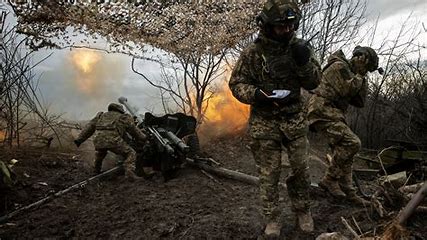Of the $300 billion in frozen Russian assets, more than $6 billion are held in US banks.
In Short
- The u.s. house approved the repo act, enabling the seizure of frozen russian assets from american institutions.
- Epshtein emphasizes u.s. leadership as pivotal for prompting action among g7 nations to seize russian assets.
- The move could impact global financial dynamics and the ongoing conflict with russia.

TFD – Delve into the discussion on seizing Russian assets as Epshtein emphasizes the crucial role of U.S. leadership among G7 nations. Discover how diplomatic maneuvers could impact global financial stability and the ongoing conflict dynamics.
On Saturday, the House approved a foreign aid package and the so-called REPO Act, which gives the Biden administration the authority to seize Russian assets valued at billions of dollars that are held in American institutions and send them to Ukraine for reconstruction.
Rep. Ritchie Torres, D-N.Y., stated on social media that “the United States has reasserted itself as the leader of the free world and as a reliable partner to its allies” by providing Ukraine with desperately needed aid. The US has a singular obligation to help freedom fighters fight for their freedom, and nowhere more so than in Ukraine, whose self-defense against Putin’s aggression must prevail.
Part of the foreign aid package that languished in the House for months was the REPO Act, which would allow Biden to seize the frozen Russian assets in American institutions and move them to a special fund for Ukraine. Of the $300 billion in frozen Russian assets, more than $6 billion are held in US banks. The assets totaling $300 billion are primarily located in Belgium, France, and Germany.
The program, which would include tens of billions of dollars in aid for Taiwan, Israel, and Ukraine, was unveiled on Wednesday by House Speaker Mike Johnson, a Republican from Louisiana.
I’m going to give every House member a chance to vote their conscience and their will on this,” Johnson said to reporters in support of his choice to enable the vote to take place on Saturday.
In order to maintain the stability of the ruble, Russian President Vladimir Putin and his administration made significant investments in the euro and the dollar over time, amassing $300 billion in foreign exchange reserves.
However, all of the Group of Seven nations (the United States, the United Kingdom, Canada, France, Germany, Italy, and Japan) united in the wake of Putin’s invasion of Ukraine in early 2022 and froze the $300 billion in Russian foreign currency reserves that were kept in those nations’ banks, the bulk of which was in Europe.
According to Chris Miller, a professor at Tufts University’s Fletcher School of Global Affairs, “the Russians were surprised when, right after the war started, the Europeans took the exact same measures as the United States, freezing all of the reserves that were there,” and the Japanese followed suit. As a result, the majority of Russia’s reserves are now frozen in Western banks.
The notion of seizing the Russian assets surfaced last year, and specialists in foreign affairs and economics have been vigorously opposing it.
Contributing opinion writer Christopher Caldwell stated in a recent New York Times op-ed that seizing the Russian money would be a “terrible idea” since it would discourage foreign investment in the United States, which would have long-term detrimental effects on the economy.
The dollar’s standing as the primary reserve currency of the world may be weakened by this. According to Caldwell, the dollar is most likely the most significant strategic asset that the US possesses.
Caldwell’s claim was met with a retort from Michael McFaul, the former US ambassador to Russia who has been pushing for the REPO Act for months. McFaul claimed that using Russian assets for Ukraine would send a strong message to despotic countries worldwide.
Some argue that this will negatively impact the value of the dollar. It damages our standing. That pushes back on me. I don’t want criminals investing in American Treasury bonds,” McFaul said.
Convincing the other G7 nations to follow suit would be one of the diplomatic obstacles. While France and Germany have been hesitant, the United Kingdom is in favor of the notion.
U.K. Foreign Minister David Cameron told reporters on April 9 that “we’re making good progress in how to access those funds on an agreed basis that I think we can take forward to the G7.”
While all of this is going on diplomatically, a shadowy group has been steadily pressuring Congressmen, the White House, and the G7 nations to proceed with the concept of seizing the money.
The Renew Democracy Initiative, a Washington D.C.-based nonprofit organization promoting democracy and American interest overseas, sent a letter Friday urging Johnson and House Minority Leader Hakeem Jeffries, D-N.Y., to work together to get the REPO Act passed.
Chairman Garry Kasparov and CEO Uriel Epshtein wrote, “Your leadership through legislative action will increase the likelihood that the administration does what is necessary to confiscate Putin’s billions.”
In a Friday interview, Epshtein stated that he thinks the United States must move to force the G7 to work together to seize the money.
“If the United States leads, other G7 nations will only take action to seize Russian assets,” stated Epshtein.
Conclusion
The call for seizing Russian assets reflects intricate diplomatic and financial strategies amidst the ongoing conflict. U.S. leadership’s role in this maneuver signals potential shifts in global dynamics, emphasizing the delicate balance of power and alliances in the current geopolitical landscape.
Connect with us for the Latest, Current, and Breaking News news updates and videos from thefoxdaily.com. The most recent news in the United States, around the world , in business, opinion, technology, politics, and sports, follow Thefoxdaily on X, Facebook, and Instagram .
